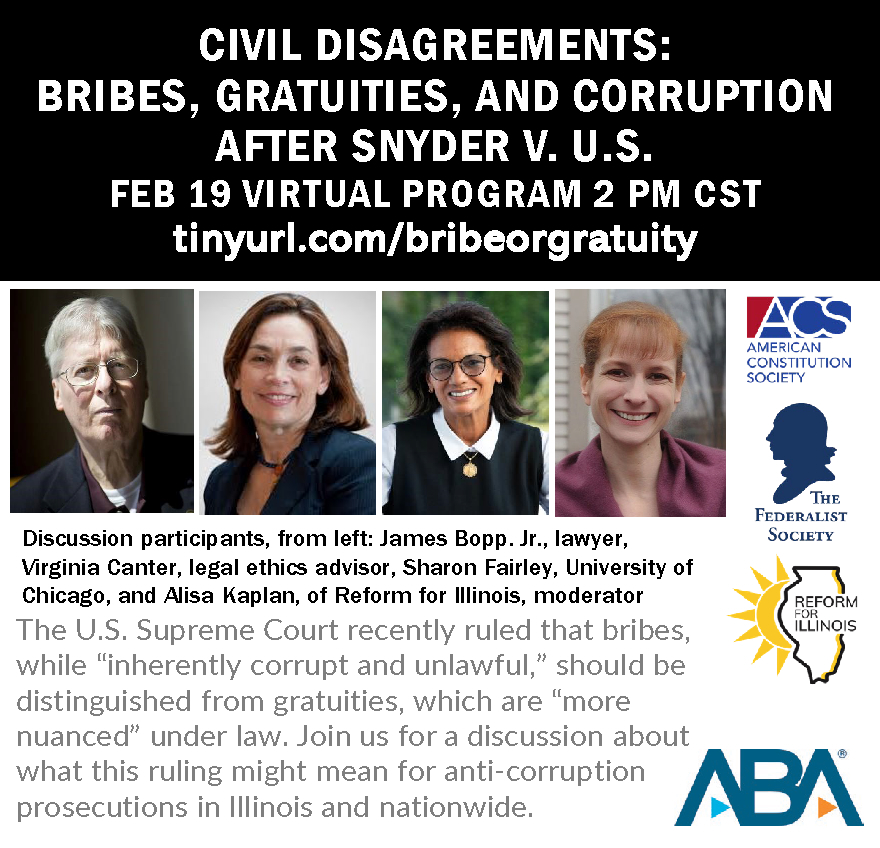To engage the public on matters critical to reform, Reform for Illinois hosts regular educational forums open to anyone. The forums focus on timely, relevant topics and often feature expert panels, key policymakers and candidates.


In 2024, the U.S. Supreme Court’s controversial ruling in Snyder v. United States held that the federal law banning public officials from accepting certain payments (18 U.S.C. § 666) only criminalizes bribes received in exchange for official acts. Under that ruling, the statute does not apply to “gratuities” or gifts—such as gift cards or lunches—given for past acts absent a quid pro quo agreement between the payor and the official.
The Court explained that “[b]ribes” are “payments made or agreed to before an official act” to influence the official to carry out “that future official act.” By contrast, “gratuities” are payments made “after an official act,” “with no agreement beforehand,” and “are not the same as bribes before the official act.” Having made that distinction, the Court said that “American law generally treats bribes as inherently corrupt and unlawful . . . [b]ut the law’s treatment of gratuities is more nuanced.”
What does the Snyder ruling mean for bribery prosecutions in Illinois and across the country? Could this decision spur changes to state anti-corruption laws?
Civil Disagreements is a series of moderated debates on current, critical, and often contentious civic questions sponsored by Reform for Illinois, the American Bar Association’s Division for Public Education, the American Constitution Society (Chicago and Austin, TX chapters), and the Federalist Society (Chicago chapter).
© 2025 Reform for Illinois
Reform for Illinois is a research and advocacy
Reform for Illinois
230 E Ohio Street
Suite 410 #1459
Chicago, IL 60611
(312) 436-1274
Contact Us